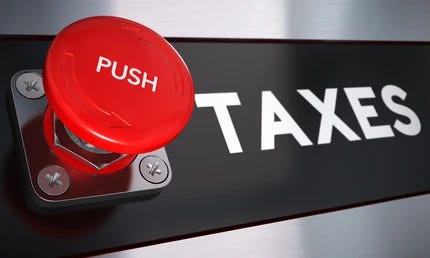Inflating an already troubled Economy
Yesterday, the government implemented new Goods & Service Tax (GST) on some additional products which I would like to call ‘items of common consumption.’ While some items were now exempted, other items were stripped bare of exemptions they had earlier.
Items of common consumption (aka daily use) such as atta, curd, etc were brought under GST. Such items have become more dearer for the common man. I don’t know whether this move is good or bad, but for sure this was implemented at the most wrong time. These changes are putting pressures on already worsened retail inflation (not to mention a falling rupee and WPI).
At a time when the need to improve healthcare sector is a top priority and on the face of so many diseases, hospitalization rates have gone up, if not significantly. Imposing 5% GST on hospital rooms above ₹5,000 does not make any proper sense until you don’t want to profit on someone’s bad health. Thankfully, ICUs are exempted. But the urge to mint money doesn’t follow what’s good apparently.
I find it surprising that there has to be a tax on all things almost. First you are born and give a tax to hospital. Keep on paying taxes for everything used until you get a job. When you get a job, things get interesting. You work hard, pay taxes on everything possible like hospitals, telecommunications, banking, gifts, groceries, electricity, gas and so on. Then after so much of struggle you earn some decent income. Now you have to pay tax on that too. So basically your whole life is taxed. But corporates, nah! They have to usher and make the economy great again.
Hospitals (treatment, meds and beds) and common use products don’t need to attract GST. If there is so much of a need to churn revenue while making things tougher in an already worse time, maybe the citizens earn some relief too? How about bringing fossil fuels under GST? It can become cheaper — if you want a uniformly implemented tax on things that you want, why not implement GST on something we wish to be brougt on?
And then 18% taxes on tetra packs and cheques. Excellent, ain’t it? You earn money, you want to pay someone and you’re taxed for it. Household necessities are taxed. Revenue hold a higher priority index in a disturbed economy where there are virtually unprecedented levels of unemployment. People don’t have money to pay, how do you expect them to get money out of thin air? Banks will now maybe find a way to pass on the burden of this to the customer as been the powerful been doing over time. It might be a move to promote net-banking solutions but is a big problem for MSMEs as cheques still consist of a huge chunk of their finance.
I’m wary that this article might invite great criticism from many people, yet what’s true remains true. If you find a error in this, please mail to adarshgupta@substack.com and I’ll get back to you.
18% tax on ink and pencil sharpeners and atlas, but why? Works contract for roads, bridges, railways, metro, effluent treatment plant, crematorium are also brought under this slab. See, now to travel you have to pay tax, buy a vehicle and pay tax. And pay a tax for a cremation (although I don’t know if its for the service or for construction of such). The tax is overburdening people collectively, more likely than the inflation to some extent. Where are we heading to?
Due to the economic impact of the COVID-induced lock down, its estimated that about 140 million and more than 50% of households have their income dropped. Just imagine the effect of this move on those households and families. Its miserable at such a time. Anything that is packed is suddenly valued higher and anything that’s unpacked is still exempt from GST. You might be wondering how does packaging involve GST. Nope, it does not. Instead, a branding does. I find it surprising that GST Council has increased prices of goods of mass consumption just because they’re branded or come pre-packed.
Taxes are the main sources of revenue for s government and I totally understand it. In the last two years, the revenue of Government also has been impacted like us, But just imagine if Government takes both corporate and income taxes fairly from the top one percent (metaphor for the ‘rich’), how the burden of middle and lower class (financially) people can be reduced, albeit significantly. According to a study conducted in 2020, India’s richest hold about 42.5% of national wealth while the bottom 50%, the majority of Indian population owns a mere 2.8%. If you consider a somewhat recent report, India's top 10 per cent of the population holds 74.3 per cent of the total national wealth while the bottom 90 percent holds 25.7 percent of national wealth.
One thing could be to export more than import. That might as well solve the problem. I don’t say this decision is right or wrong — you are free to believe what you feel right. To put it bluntly, this is not an innovation but a tragedy, a disaster-in-the-making. Or maybe I'm confused — or maybe I just think different.
Thanks for reading Adarsh's Narrative! Subscribe for free to receive new posts and support my work.





